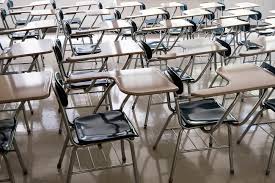Governor J.B. Pritzker announced the closure of current school year today.
During his daily COVID-19 update, Pritzker suspended in-person learning for Illinois schools for the reminder of the 2019-2020 academic year, with remote learning days to continue for all pre-k through 12th grade students.
Pritzker says decisions must follow science, and the science says students can’t go back to their normal routine this school year.
“We know that there are many school districts with unique challenges, and we will work with them on any issues that may arise. I know that many have felt that this was inevitable. But trust me when I say this was not a decision that I made lightly.
The importance of our schools and our in-person school days is not just a question of tradition and sentimentality. As essential as those things are, the shutting of in-person classroom time also risks a drop in instructional time, an extended window in which students can potentially experience summer learning loss and an educational landscape in which some districts have more experience with remote learning than others.
These challenges weighed heavily on me as we came to this decision, but my priority remains unchanged. How do we save the most lives during this very difficult time?”
Pritzker says Illinois will receive approximately $569 million in federal funding for pre-k through 12 schools as part of the CARES Act. He says the funding will go toward assisting students with technology and internet access to remote learning, teacher development in remote learning and assistance for meal distribution by school districts, among others.
Pritzker also announced he will be signing an executive order to wave the edTPA and student teaching requirement for educator candidates who have completed all other requirements for licensure. He says the move will ensure that the COVID-19 does not impact local school district’s ability to hire qualified educators they need to support students.
Graduation requirements have also been amended for high school seniors, including allowing students to graduate without completing the normally required participation in consumer education and physical fitness assessment.




